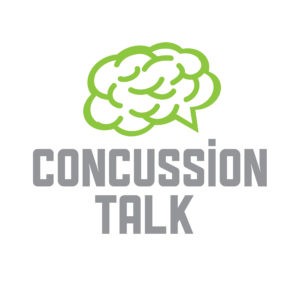Episode 52 of follows close on the heels of episode 51, as I talk to Leona Burkey, Executive Director of Brain Injury Association of Nova Scotia. I first met Leona at Dalhousie University School of Physiotherapy as we were both speaking to a class of soon-to-be physiotherapists. Leona and episode 51 guest, Chloe Luckett, worked together ...
Episode 50 – Navigating Concussions (Molly Parker, PT, DPT)
This podcast is about Navigating Concussions with Molly Parker, PT, DPT. Molly has had Post Concussion Syndrome and a sensorimotor disorder for 7 years. Dr. Parker now uses a plethora of research, community engagement, and her ability to communicate via social media, to help others who have had a concussion to move forward. Dr. Parker ...
Episode 49 – Queen’s University Concussion Awareness Committee (Katie Bohn, Co-President, Host of NEW PODCAST!)
I'm thrilled to have Katie Bohn talk about Queen's Concussion Awareness Committee (QCAC) and their upcoming podcast that will be available on Concussion Talk Podcast! Katie is in her fourth year doing a degree in Physical and Health Education at Queen's University (my alma mater) in Kingston, Ontario, Canada. Katie has been Co-President of QCAC for ...
Episode 12 – Phoenix Concussion Recovery (Persistent Postural Perceptual Dizziness – 3PD, Chronic Dizziness)
Happy new year! Phoenix Concussion Recovery Podcast is back in 2020! Lauren and I were choosing between chronic dizziness and chronic pain to be the topic for this episode. Chronic dizziness will be the topic for episode 12, but chronic pain is the first topic in the queue. Lauren talks about chronic dizziness, or Persistent Postural-Perceptual ...
Episode 48 – The Brain: Complexity abounds (Joseph LeDoux, NYU, Emotional Brain Institute)
My guest for Episode 48 is Joseph LeDoux, PhD, Professor of Neural Science, Psychology, Psychiatry, and Child and Adolescent Psychiatry at New York University; Director Emotional Brain Institutel. His awards and accolades are too many to note here, but suffice to say, he is accomplished. Joe has written several books, including The Emotional Brain and ...
Episode 47 – Concussion in Women and Girls (Meaghan Adams, PT, PhD)
On Episode 47 I talk to Meaghan Adams, PT, PhD, VISTA post-doctoral fellow at York University and Toronto Rehabilitation Institute, and Assistant Clinical Professor (Adjunct) at McMaster University’s School of Rehabilitation Science. Much of Meaghan's research has focused on how people integrate thinking, moving, and sensing the world around them. Meaghan also has a keen ...
Episode 10 – Phoenix Concussion Recovery (Dysautonomia)
After a hiatus, Phoenix Concussion Recovery Podcast is back! Lauren is in Park City, Utah for episode 10 and, instead of re-introducing primitive reflexes as we thought, goes a completely different route and explains dysautonomia, a disorder that can arise following concussion. Not just a concussion issue, but something Lauren is seeing, notably in a ...
Attitude since brain injury, and a thank you!
I wrote and posted this article on Concussion Talk's Patreon page last Friday, and here it is again. I think I made a mistake by pairing my conference post with a post about my attitude. However, I'm happy with what I wrote and I like the way I was able to frame the explanation of ...
Episode 46 – ImPACT Applications and HeadCheck Health partnership (Michael Wahlster & Harrison Brown)
On episode 46 of Concussion Talk Podcast I talk to Michael Wahlster, CEO ImPACT Applications, and Harrison Brown, CEO HeadCheck Health, about their new partnership to improve concussion screening, assessment, and management. Both companies aim to improve concussion management and are partnering to provide ImPACT Applications' concussion assessment tools via HeadCheck Health. “We are excited to ...
Episode 45 – Scott Anderson (CCO, SyncThink, describing EYE SYNC technology)
Scott Anderson is the CCO (Chief Clinical Officer) of SyncThink, a company founded by neurosurgeon Dr. Jamshid Ghajar, that produces the EYE-SYNC device - a technology that uses eye-tracking and virtual reality to diagnose fatigue and brain impairments. It’s currently in use by 3 NBA Teams, the Pac-12 Athletic Conference of the NCAA, and 2 ...
